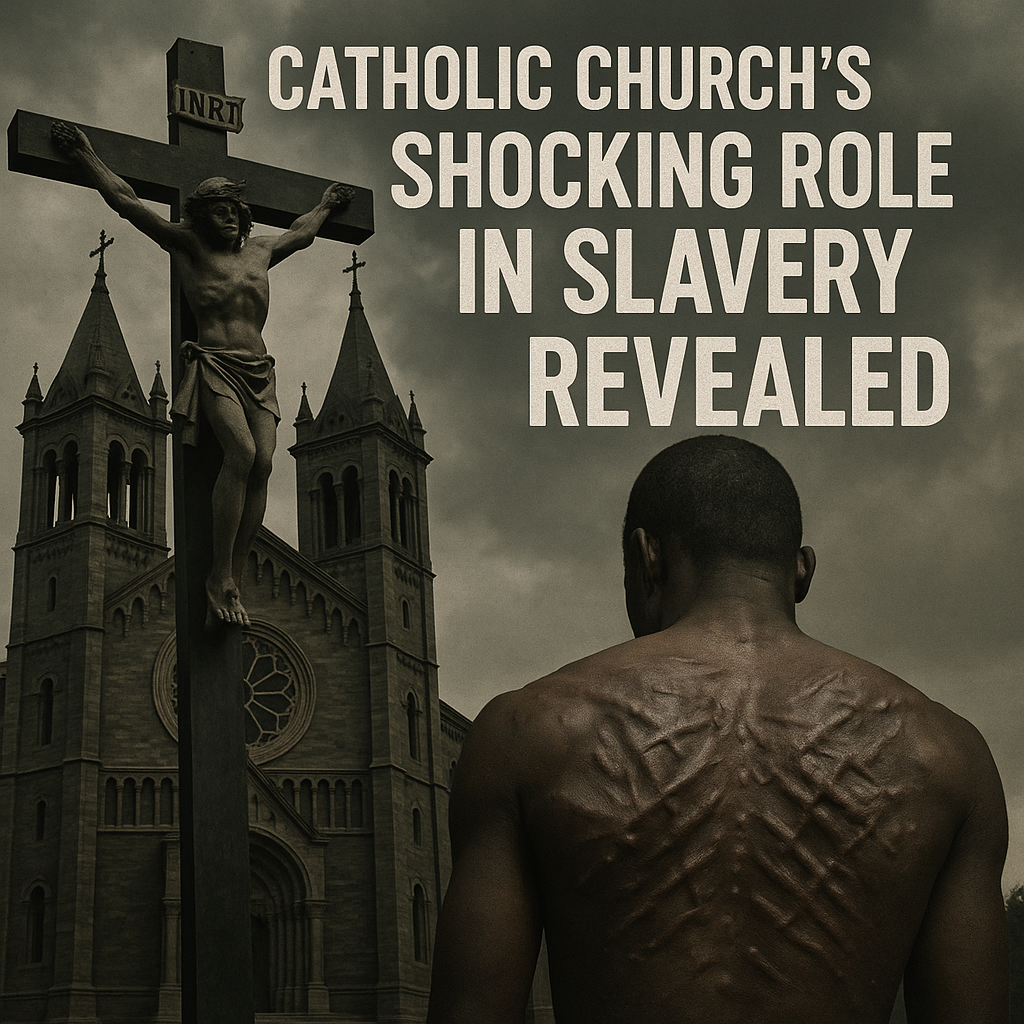Catholic Church’s Shocking Role in Slavery Revealed
The Catholic Church’s Shocking Role in Slavery Revealed
The Catholic Church’s shocking role in slavery has come to light through recent analyses of historical documentation, prompting a reevaluation of one of the most influential institutions in global history. This examination not only reveals the church’s complicity in the transatlantic slave trade but also invites a broader discussion on accountability and the need for reparative justice.
Historical Context of the Church’s Involvement

The Catholic Church, which has a profound historical influence, both in Europe and abroad, was an active participant in the institution of slavery. As highlighted in a recent article from the Atlanta Daily World, the church owned vast amounts of land worked by enslaved individuals. Many dioceses and religious orders benefitted economically from this inhuman practice, both in the Americas and during the colonial expansion in Africa and the Caribbean.
The relationship between the Church and slavery is complex. Some clerics justified slavery by arguing it was a means of spreading Christianity to “heathens.” Others, however, found themselves embroiled in moral dilemmas. Scholars have documented how church officials not only sanctioned slavery but also contributed to its perpetuation by using religious language to legitimatize oppressive practices.
The Duality of Doctrine and Action
In discussing the Catholic Church’s position on slavery, it is essential to consider the duality of doctrine and action. Historically, the Church has preached love, charity, and justice, yet the dissonance between these teachings and the involvement in slavery is striking. Recently, The Atlanta Voice emphasized this paradox, noting that while certain church figures spoke out against the injustices being committed, their institutions frequently operated in stark contradiction to those ideals.
Documents from the 15th century reveal that the church actively participated in both the enslavement and trade of African peoples. For instance, the Papal Bulls of that era often provided justifications for the enslavement of non-Christians, showcasing how religious authority could be wielded to rationalize exploitation. This historical record challenges individuals to grapple with the uncomfortable reality that an institution dedicated to service and salvation played a pivotal role in one of history’s greatest moral atrocities.
The Need for Accountability and Reparations
With the complexities of the Church’s historical involvement unveiled, discussions about accountability and reparations are gaining momentum. Advocates for justice argue that it is not enough to acknowledge past wrongs; concrete steps must be taken to address the injustices that continue to affect descendants of enslaved individuals.
Reports from various sources point to a potential movement within some church factions to confront this history directly. The leadership of certain dioceses has begun to explore reparative measures aimed at communities still feeling the repercussions of slavery. This includes educational initiatives, community engagement, and potentially financial reparations.
However, there remains a divide in the response from different church bodies. Some officials advocate for transparency and proactive measures, while others appear reluctant to confront this uncomfortable historical narrative.
The Path Forward: A Reflective Approach
As society continues to grapple with its fraught history, the revelations about the Catholic Church’s role in slavery signal a crucial opportunity for reflection and action. Understanding this past is vital not only for the Church’s integrity but also in fostering reconciliation in communities long affected by the legacy of slavery.
Conversations about the Church’s role should not be limited to blame but should extend toward collective healing. By acknowledging its past mistakes, the Church may find a pathway toward genuine engagement with social justice issues today. This process could involve developing partnerships with affected communities, supporting historical education initiatives, and working toward eliminating systemic inequalities rooted in the legacy of slavery.
Conclusion: A Call for Continuous Dialogue
The shocking revelations regarding the Catholic Church’s involvement in slavery elucidate a vital historical truth that demands ongoing discourse and action. While there is no easy resolution to the complexities of this history, a commitment to transparent dialogue and reparative justice can serve as a foundation for meaningful progress.
In moving forward, it is essential for both church leaders and the wider community to confront this aspect of history openly, ensuring that the lessons learned are not forgotten. Such a commitment can help pave the way for a more equitable future, transforming past injustices into a catalyst for healing and change.
In conclusion, the Catholic Church’s shocking role in slavery challenges us all to confront uncomfortable truths while fostering a collective responsibility toward justice and equality in contemporary society.















